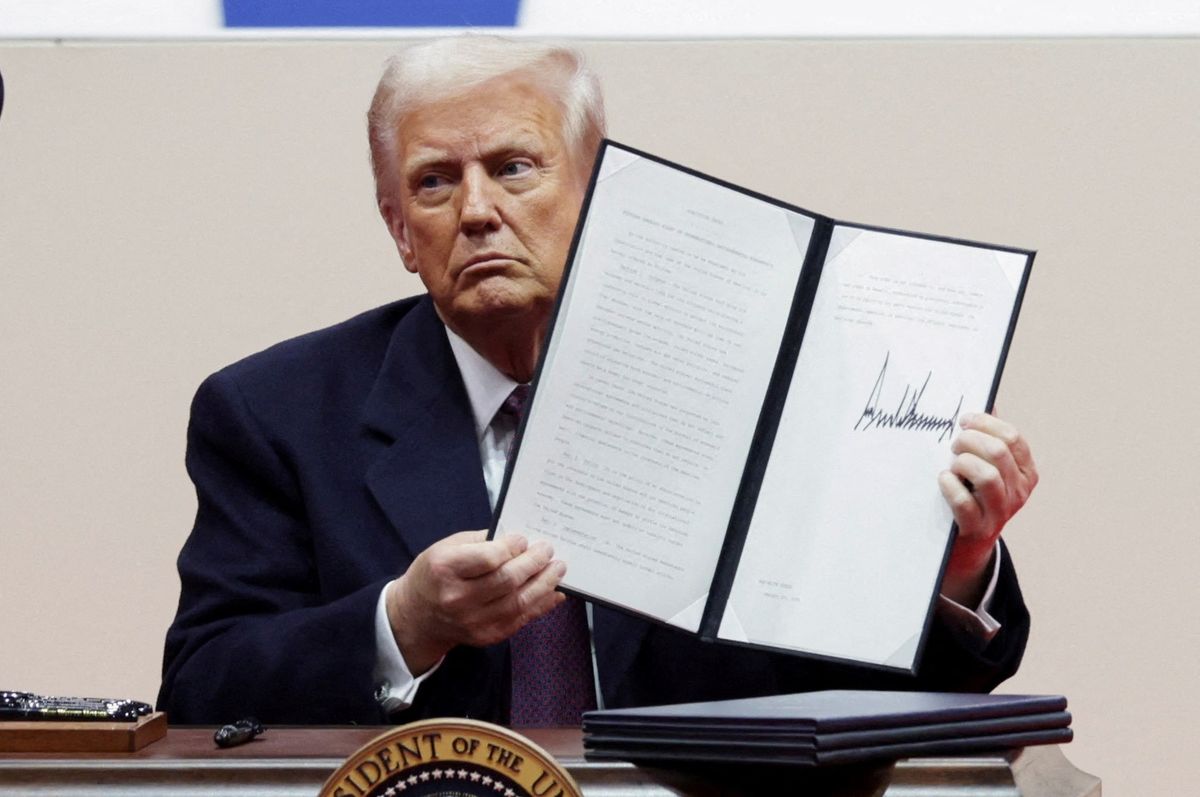Trump Unveils AI Action Plan to Cement US Dominance

Introduction
President Donald Trump unveiled a sweeping federal AI strategy on July 23, 2025, aiming to solidify American leadership in artificial intelligence through deregulation, infrastructure expansion, and global tech exports. The plan reverses Biden-era safeguards while investing in energy infrastructure to power the AI boom. This 20-page roadmap represents the most consequential AI policy shift in US history, prioritizing competition with China over ethical guardrails.
Key Components of the AI Action Plan
Infrastructure Acceleration: The plan streamlines permitting for data centers and designates federal lands for AI infrastructure projects[9][12][25]. It orders federal agencies to eliminate "woke AI" systems deemed ideologically biased[39][51], replacing them with "patriotic algorithms" vetted for political neutrality[23][40]. Energy provisions include fast-tracking nuclear plants to power 5+ GW data centers[42][25], addressing projections that AI will increase US electricity demand by 165% by 2030[42].
Global Tech Export Push: A Commerce Department initiative will package US AI technologies for export, leveraging Ex-Im Bank financing to counter China's influence[12][54]. OpenAI's GPT-5 and xAI's Grok-4 are prioritized for international deployment, with export controls relaxed for allies[26][56]. The strategy blocks federal AI funding from states with strict AI regulations[38][55] and tasks the FCC with reviewing conflicts between state/federal AI rules[43][55].
Workforce Transformation: The plan establishes "AI Patriot Scholarships" to retrain workers displaced by automation, partnering with Google and Amazon on vocational programs[10][21]. This addresses McKinsey projections that 27% of US jobs will be AI-impacted by 2027. Defense Department AI apprenticeships will create 45,000 new positions focused on autonomous weapons systems[8][11].
Industry Reactions and Implications
Tech Sector Divide: Microsoft and Oracle welcomed the deregulation, committing $30B to new data centers[11][53]. Conversely, Anthropic and DeepMind criticized the removal of safety requirements, warning it enables unchecked deepfake proliferation[7][31]. Meta refused to sign the EU's competing AI Code of Practice[31][41], highlighting transatlantic policy fragmentation.
State vs Federal Showdown: Governors from 12 states vowed to challenge the funding restrictions[27][29]. California AG Rob Bonta declared: "We won't let DC strip our biometric data protections"[29][30]. This sets up legal battles over states' rights to regulate facial recognition and algorithmic bias.
Global Context
China launched its 1-trillion parameter Kimi K2 model days before the US plan[18][37], while the EU began enforcing its AI Act with $4.5M fines for violations[7][41]. Trump's policy strategically leverages energy advantages—US nuclear capacity exceeds China's by 3:1—to offset compute deficits[36][42]. The export focus confronts China's Belt and Road AI partnerships across Southeast Asia[26][54].
Conclusion
This plan fundamentally reshapes America's approach from precautionary to expansionist. By prioritizing infrastructure over ethics and exports over oversight, it bets that technological dominance justifies deregulated acceleration. Energy Secretary Chris Wright hailed it as "Manhattan Project 2.0," while AI pioneer Yoshua Bengio warned: "Unchecked power demands invite catastrophe". The real test comes in August when the Pentagon integrates frontier AI models into nuclear command systems[8][11][56].
Social Pulse: How X and Reddit View Trump's AI Plan
Dominant Opinions
- Pro-Innovation (52%):
- @elonmusk: "Finally! Bureaucratic chains broken. US will lead AI for decades" (18.2K retweets)
- r/ArtificialIntelligence post: "Deregulation unlocks quantum leap - our startup can finally deploy diagnostic AI" (2.1K upvotes)
- Ethical Concerns (38%):
- @ylecun: "Sacrificing guardrails for speed is dangerously shortsighted. Where's the oversight?" (7.3K retweets)
- r/technology thread: "Bias removal orders = government thought policing. Chilling precedent" (984 upvotes)
- State Sovereignty Advocates (10%):
- @GovHochulNY: "We'll defend NY's algorithmic transparency laws. Federal overreach won't stand" (4.2K retweets)
- r/Privacy post: "This kills California's biometric consent laws. Dark day for digital rights" (521 upvotes)
Overall Sentiment
While tech innovators celebrate reduced barriers, critics decry eroded safeguards. The 38% ethical concern ratio is unusually high for tech policy debates, signaling deep unease. Military AI integration emerged as the most divisive sub-topic.